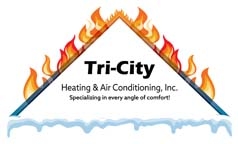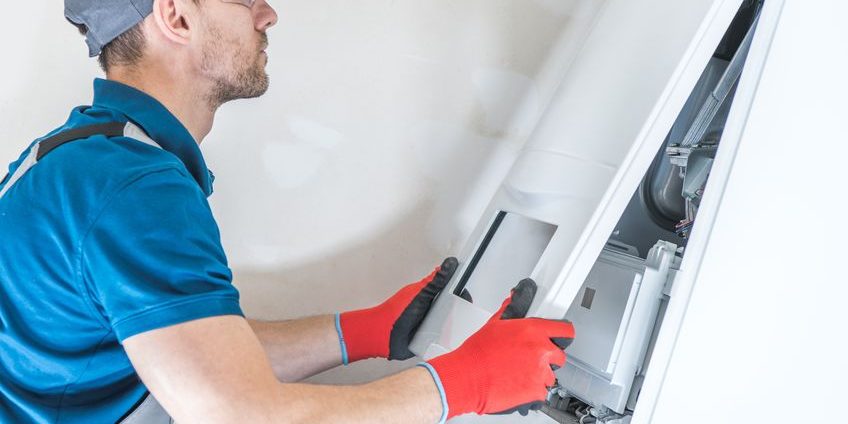You want to buy a new furnace for your home, but with so many options to choose from, it could get overwhelming at times, especially when you don’t know much about furnaces. In reality, it’s not as difficult as it seems. Understanding the different types of furnaces that are common in the market is enough to make one a well-informed buyer.
If you are shopping for a new furnace, do the following steps to help you choose the perfect one for your home:
Know the Different Types of Furnaces
Single-Stage VS Two-Stage
Simply put, a single-stage furnace gives you the same heat temperature every time it runs while two-stage, as its name suggests, gives you two temperature settings for the heat output
A single-stage furnace operates only at full capacity. On the other hand, a two-stage furnace starts at low power and adjusts its heating capacity depending on the homeowner’s preferences.
In terms of price, single-stage furnaces are much cheaper than their two-stage counterparts, but the latter’s advantage over the former is its efficiency. In the long run, the two-stage model is a much better investment.
Fixed Speed VS Variable Speed
Though both use a motorized fan to blow hot air through the ducts, the difference between these two types is how the speed of their blowers is controlled.
A fixed-speed blower operates at a single speed, hence its name. In contrast, a variable-speed blower’s speed changes from time to time, running at first at the lowest rate until it reaches the target temperature set by the homeowner. If it fails to reach its target, the fan will automatically increase its speed until it reaches the homeowner’s preferred temperature.
Comparing the two, a furnace with a variable-speed blower is more efficient than its fixed speed counterpart. It’s also a lot quieter, mainly when operating at lower speed settings. Also, keep in mind that a two-stage furnace most likely comes with a variable speed blower as is.
Choose a Fuel Type That Best Fits Your Budget
Different fuel types can power furnaces, but the most common ones that furnaces in the market run on are gas, oil, and electricity.
Electric furnaces
Electric furnaces run off the local power grid. The most obvious advantage of this is that you won’t be faced with a separate gas bill for running it. However, a noticeable downside of this type is that it heats up slowly compared to gas and oil-powered furnaces. For areas with mild winters, an electric furnace is enough, but when installed in areas where the cold weather is much harsher, it’s not an efficient solution. For states with chilly winters, such as Colorado, where the average low temperature is 17.2 degrees Fahrenheit, a gas or oil-powered model is most suitable. It can provide the high-efficiency heating that your home needs without your energy consumption skyrocketing.
Gas Furnaces
Gas furnaces are the most popular type, and though they are easy to operate, they usually cost more than oil furnaces. Still, the upside to this is that these furnace types have higher efficiency ratings, which means saving money over time as you continue to use the unit. The money you’ll save will have been enough to cover your initial installation costs. Another advantage of gas furnaces is that you don’t need to worry about refilling it as you can already get it from a gas line. But if you don’t have a pre-installed gas line, it can be expensive.
Oil Furnaces
If you have budget concerns, you can still opt for oil furnaces. Aside from being efficient and durable, oil generates the most heat out of the three most common furnace types. Homeowners need to refuel the tank of oil furnaces regularly to keep operating, unlike gas furnaces where the gas is continuously supplied through underground utility lines.
Be aware that oil prices fluctuate a lot more often than gas. Prepare for this possibility, because sometimes oil prices may drop today and skyrocket by the next month. If you don’t want this type of inconsistency with fuel costs, consider getting a gas furnace that has more stable, predictable monthly expenses.
Now, this could be a lot to take in. After knowing all of the advantages and disadvantages, all you need to do is check if your home has a pre-installed gas line. If it does, then a gas-powered furnace is obviously the most suitable choice, but if you don’t have this, then forget about gas and stick with an oil or electric-powered furnace instead. If you’re still on the fence, reach out to a company that offers heating installation services.
Determine What Furnace Size Your Home Needs
Size matters in choosing a furnace for your home. Too big, and it consumes more power than it needs to while shortening its life span. Too small, and it won’t have the ability to keep you warm during winter.
To know which furnace size (measured in BTU) your home needs, you need to talk to an HVAC professional experienced in heating system installation. They’ll be able to perform a load calculation that will result in the right BTU size of furnace for your home. Please don’t disregard this step because it will help you avoid problems later on.
Check Fuel Efficiency Rating
Aside from fuel type, one of the best decision factors in choosing a furnace for your home are fuel or energy efficiency ratings like EER (Energy Efficiency Ratio).
AFUE (Annual Fuel Utilization Efficiency) Rating describes the furnace’s overall energy efficiency expressed in percentages. The higher the number, the greater the efficiency. The AFUE ratings for oil furnaces range from 78 to 86 percent. In comparison, gas furnaces have ratings that can go up to 98 percent in AFUE ratings.
To be sure, check several furnace models and compare their EER and AFUE ratings. Get as many data points as possible.
***
Make an informed decision when selecting the right furnace for your home in terms of size, cost, and comfortability! You can seek advice from an HVAC professional who is an expert in furnace installation. Ultimately though, it comes down to your gut feeling and personal preference. Still, it can’t hurt to do your due diligence to make sure that you’re making the best investment for your home.
For all your furnace needs in Loveland and Fort Collins, contact Tri-City Heating & Air Conditioning today!














